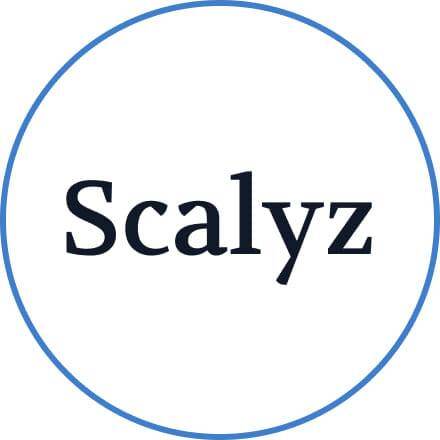In a constantly evolving IT world, recruiters and ESNs (IT services companies) face a major challenge: how to effectively assess candidates' technical skills? Traditional tests, often theoretical, disconnected from DevOps daily work, and repetitive, no longer measure a talent's real value.
In this article, we explore the limits of these methods, the current market expectations, and the emerging approaches to identify the right technical profiles.
Table of Contents
1. The Limits of Traditional Technical Tests
3. The Consequences on Recruitment
4. Toward a New Generation of Evaluation
5. Exploring New Assessment Solutions
1. The Limits of Traditional Technical Tests
Tests coded on Excel sheets or built into generic platforms have long been standard in IT recruitment processes. Yet, these tools have major shortcomings when it comes to evaluating real-world skills.
They mostly assess theory, asking about out-of-context technical concepts with no direct link to actual challenges faced in the field. As a result, candidates who excel at solving real problems, those who can improvise, quickly respond to incidents, or automate complex tasks, often go unnoticed.
These tests also tend to be overly academic, structured in rigid formats without real interaction or pressure. However, a DevOps mission requires responsiveness, adaptability, and the ability to manage shifting priorities in real-time.
They end up favoring "academic" profiles who have trained to "cram" for these types of tests rather than professionals able to adapt to complex, unpredictable, and ever-changing environments.
Finally, they fail to detect key skills that are now essential, such as deployment automation, incident handling in production, or efficient collaboration in agile and distributed environments.
2. Real Field Expectations
Companies and ESNs recruiting for DevOps roles are no longer looking just for candidates who can recite commands or explain concepts. They want talent who can perform under real conditions, adapt to modern tool ecosystems, and meet business constraints.
Specifically, the expectations are clear:
- Automate CI/CD processes using tools like Terraform, GitLab CI/CD, or Jenkins to industrialize deployments.
- Manage dynamic cloud infrastructure (AWS, Azure, GCP), often across multiple accounts and environments, while addressing security, scalability, and monitoring issues.
- Work with technologies like Kubernetes or Docker, not in theory, but in practice: creating pods, managing volumes, resolving crash loops, etc.
- Make quick, autonomous decisions when facing production incidents or urgent business needs.
- Collaborate across teams in agile settings, where communication, documentation, and pair work are essential.
These practical skills are the real reflection of a candidate's level, and yet they completely elude standard theoretical tests.
3. The Consequences on Recruitment
When recruiters rely only on traditional technical tests, several consequences quickly emerge:
- They may overlook highly competent profiles who could thrive in complex environments but fail written tests that don’t reflect reality.
- They risk wasting time on interviews based on narrow or irrelevant criteria.
- This increases the risk of poor hires: candidates who pass a test but can’t apply their knowledge in real DevOps missions.
The hiring process becomes longer, more expensive, and sometimes leads to client dissatisfaction. A recruitment process without objective evaluation also hurts a company's employer brand.
4. Toward a New Generation of Evaluation
Faced with these limitations, a new generation of tools and evaluation methods is gradually being adopted by the most demanding ESNs. These innovative solutions rely on:
- Realistic simulations: the candidate is placed in a technical lab where they must resolve incidents, deploy infrastructure, or automate a pipeline.
- Market-aligned job scenarios: the evaluation is tailored to the actual context of the job (complexity level, tools used, production constraints).
- Automated and objective reports: they measure efficiency, resolution time, and the logic used, not just a raw score.
- Integrated soft skills evaluation: how the candidate reacts under pressure, documents, makes decisions... matters just as much as technical skills.
These methods streamline pre-screening, save time from the first stages of the hiring process, and provide a reliable evaluation more in line with the market's needs.
If you’re interested in this topic, we also recommend reading our article :
How to Effectively Evaluate DevOps Skills Without Bias
5. Exploring New Assessment Solutions
More and more ESNs and recruitment agencies are turning to immersive solutions to avoid the pitfalls of traditional tests. We're seeing the rise of:
✔️ Interactive technical assessment platforms
✔️ Labs simulating real DevOps environments
✔️ Tools combining hard skills and soft skills for a complete candidate overview
Scalyz is part of this new wave of platforms. Discover how Scalyz facilitates DevOps evaluation
Our solution allows candidates to be assessed under real mission-like conditions, with instant reports and authentic scenarios.
Conclusion
Traditional technical tests no longer meet the demands of a rapidly evolving market, where responsiveness, hands-on experience, and adaptability outweigh pure theory. To recruit effectively, it's crucial to rely on immersive tools that assess practical skills from the very first steps of the process, streamline pre-screening, and save valuable time for both recruiters and candidates. This approach better qualifies talent while reducing costly hiring errors. New solutions now exist to support this transformation in tech recruitment. It’s time for ESNs and staffing firms to embrace them.
Partager cet article




